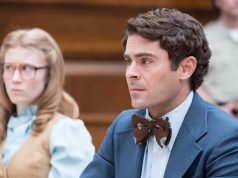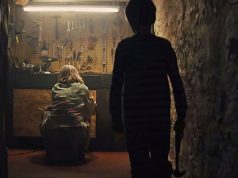1986’s “Manhunter” was a competent but unremarkable adaptation of Thomas Harris’ 1981 novel “Red Dragon” — itself a competent but unremarkable psychological thriller that introduced the world to Hannibal Lecter.
Lecter had a small part in the book, and in Michael Mann’s film, where he was chillingly portrayed by Brian Cox (recently of “Super Troopers” and “The Rookie”). Lecter resonated, though, and Harris’ sequel, “The Silence of the Lambs,” gave him a meatier (sorry) role, even though he was serving essentially the same function of helping the FBI catch a killer while messing with an agent’s mind.
The film “Silence of the Lambs” (1991) won Anthony Hopkins an Oscar and made Hannibal Lecter a cultural icon, soon to be parodied and imitated by countless other films. That response prompted Harris to write a third book, this time called “Hannibal” and focusing a great deal on its title character.
That book, like the 2001 film that followed it, made the mistake of assuming that because we enjoy a villain in occasional glimpses means we’d like to see him as the main player. In fact, Lecter was better as a small, key figure. He is a cannibal, after all, a distinction that becomes garishly funny rather than scary when administered in large doses.
Which brings us to “Red Dragon,” the new film that could be called a remake of “Manhunter” but that is more accurately simply a new adaptation of the original novel.
It is also a prequel to the “Silence of the Lambs” film, casting Hopkins in what has become his signature role, all due respect to Brian Cox (who was offered the part in the 1991 film but turned it down).
It seems neat and orderly to remake “Red Dragon” with Hopkins. It was messy to have to name two actors who had played Lecter; now we can say it’s Hopkins’ role and let “Manhunter” and Brian Cox become footnotes.
But “Red Dragon,” directed by Brett Ratner ( “Rush Hour”), is more than an obsessive-compulsive completion of a set. It is, in its own right, a thrilling and compelling film, meeting the dual goals of telling a good story and satisfying the morbid cravings of an audience dying to see more of Hannibal Lecter.
Lecter, whom Hopkins still plays with unblinking maniacal glee, is given more to do than the novel gave him, but not so much that he becomes gratuitous.
Taken on their own, Lecter’s contributions to this film would be creepy but not extraordinary. “Red Dragon” works best as a prequel — a film that takes place before, but was made after, the others. We are given goosebumps by him mostly because of his reputation, even though the events that earned it for him have not, technically, happened yet.
In a fantastic prologue that reads like the climax of a different movie — may I suggest another prequel? — we meet both Lecter and FBI agent Will Graham (Edward Norton). Graham, injured by Lecter in his capture of him, retires from the force and adopts a passive lifestyle in Florida, fixing boats and lazing about with his wife Molly (Mary-Louise Parker) and son Josh (Tyler Patrick Jones).
His ability to understand the thought processes of psychopaths, which made him a legend in law enforcement, was a burden, too. He is glad to let it lie dormant.
It is with reluctance, then, that he accepts the call of FBI buddy Jack Crawford (Harvey Keitel) to help catch a new killer. He has murdered two families on successive full moons; it seems likely he will strike again. There are few clues. Graham’s expertise — and his unsettling rapport with evil genius Lecter, now imprisoned — are needed.
Old wounds are reopened. Graham has to face Lecter again; he is once more hounded by sleazy tabloidist Freddy Lounds (Philip Seymour Hoffman, once again brilliant as a mealy-mouthed loser); and his unique “gift” for thinking like a murderer returns.
Not much time is lost before we meet our maniac of the month. He is Francis Dolarhyde, a cleft-palated loner who works at a film-developing plant. He is played with subtle, crafty schizophrenia by Ralph Fiennes, whose steely blue stare matches Hopkins’ and whose performance also recalls that of another Anthony — Perkins, in “Psycho.” (Norman Bates and Francis Dolarhyde share a few maternal issues, too.)
Both Edward Norton and his character seem overwhelmed by their portentous surroundings, lost amid the shrieking musical score and more interesting performances. Norton is fine, but he looks too young and frail. When it’s over, you may have forgotten he was in the film.
The screenplay is by Ted Tally, who won an Oscar for his “Silence of the Lambs” adaptation. He has masterfully streamlined and focused Harris’ novel, cutting out the extraneous parts and altering the ending just enough to give it a clever twist without changing the outcome (and it’s still more faithful to the book than “Manhunter” was).
He has also added a postscript that eerily sets up “Silence of the Lambs.” George Lucas can only dream of creating a prequel as organic, effective and ominous as this one.
B+ (2 hrs., 4 min.; )





